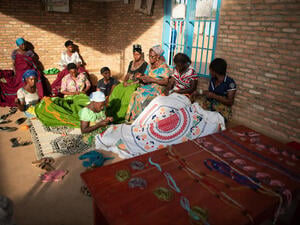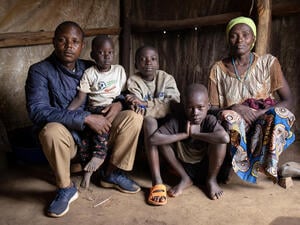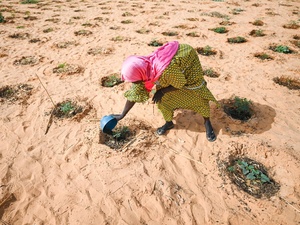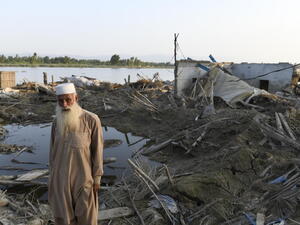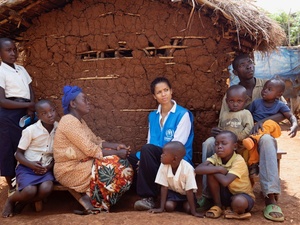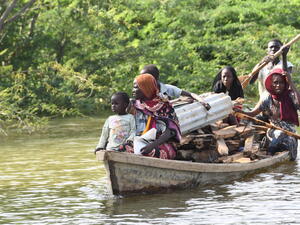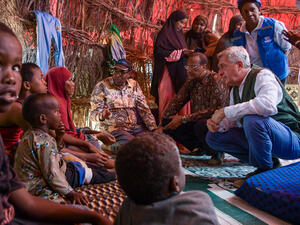'I have been working with a commitment I have never had before'
'I have been working with a commitment I have never had before'
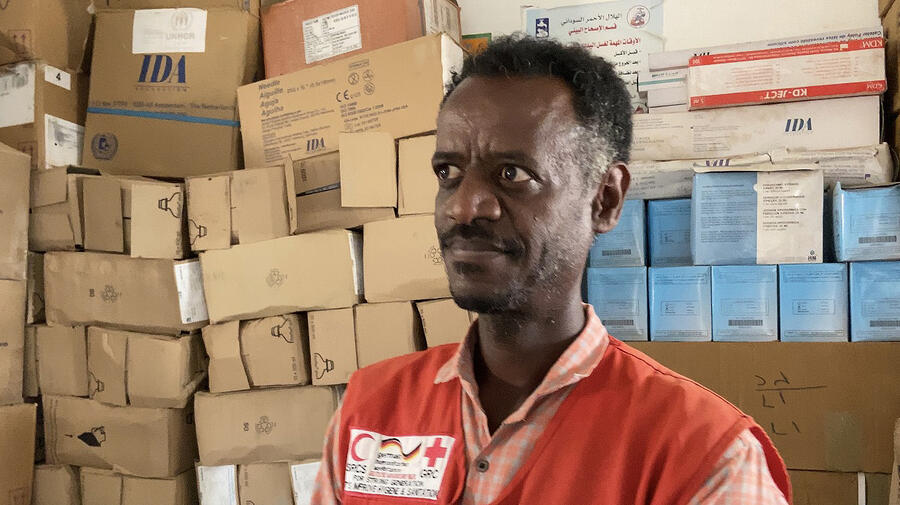
Ethiopian refugee doctor, Tefera Tewodros stands in the health clinic in Hamdayet, eastern Sudan.
Medical doctor Tefera Tewodros was among the first refugees to reach safety in East Sudan at the onset of the crisis last November in Ethiopia’s Tigray region.
Since then, he has been living and working at the health clinic in the border town of Hamdayet in Kassala state, where the majority of the 60,000 refugees fleeing the conflict in Ethiopia have sought safety.
Born in Eritrea, Tefera moved after independence to Ethiopia, where he graduated from medical school and became a surgeon. For the past few years, he worked as a surgeon in Humera. He had a comfortable life and never imagined he would have to flee with just the clothes on his back.
“The first days as a refugee were the worst of my life. It was confusing and traumatic. I didn’t know exactly what was happening. I was unable to think,” recalls the doctor who was cut off from his loved ones as all communications were down.
But on 16 November, everything changed. Stunned by the sheer number of people streaming across the border, many sick or wounded, he realized he had to step up and help. He went to offer his support to UNHCR, the UN Refugee Agency and the Sudanese Commission for Refugees (COR) at the Hamdayet transit centre. The very next day he started volunteering at the health clinic, run by the Sudanese Red Crescent Society.
“The first days as a refugee were the worst of my life. It was confusing and traumatic.”
Regardless of the long hours, the lack of staff and medical supplies, Tefera has found renewed purpose in his work.
“Since that first day, I have been working with a commitment I have never had before,” he adds.
He and his colleagues attend to hundreds of patients daily at the health post in Hamdayet, a facility that has only two rooms – one used as an office and outpatient department and a second serving as an infectious diseases laboratory, pharmacy and storage. It also functions as a mini hospital with an operation and resuscitation table, which used to be the doctor’s bed.
“I now sleep on a mat behind the clinic,” he says.
While he sometimes feels unable to perform to his full potential, due to the difficult circumstances, he continues to volunteer at the medical facility.
“At least I am doing something beneficial for my people and I am proud to support the local community too,” he explains.
He is currently training eight volunteers to help with the daily activities at the clinic.
“It takes time to train them as they are now requested to go beyond their routine work, amid many challenges,” he adds.
But he adds that there are some small wins, regardless.
“One of our trainees actually left us recently to start a job at a nearby clinic,” he says.
“I now sleep on a mat behind the clinic.”
Tefera supports his people not only as an experienced physician but as someone who is going through a similar situation and understands the trauma of being uprooted.
“Feelings can’t be translated as easily as words can,” he says, adding that he is convinced that sharing the language and culture of his patients enhances his ability to help them.
Besides his work at the clinic, the doctor spends his limited spare time talking to his friends and family abroad in Europe, the USA, and other countries. His ultimate hope is to go back to the life he had before leaving Ethiopia.
Until then, while more than 30,000 refugees have been relocated from the border areas to the Um Rakuba and Tunaydbah settlements, in Gedaref State – to offer them security and better living conditions – he is committed to remain in Hamdayet and keep aiding the community there.


